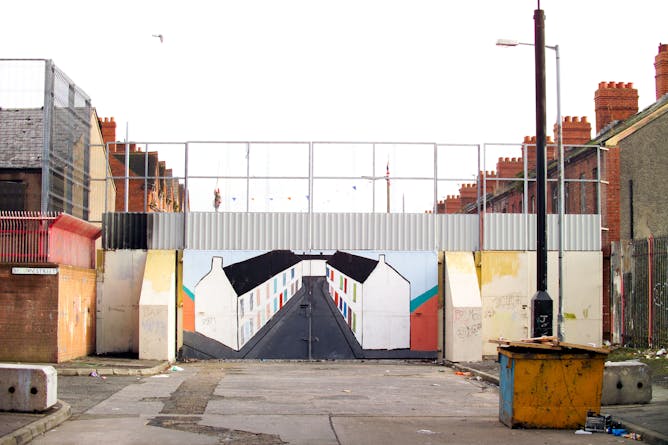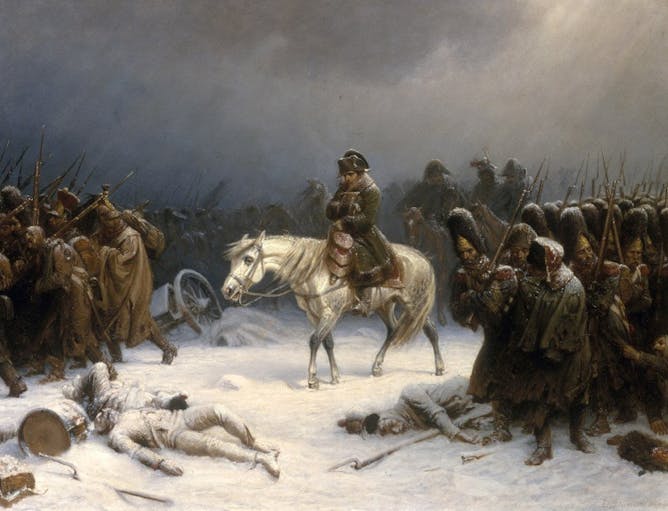|
Two years ago, a village in Canada – not known for its deserts or extreme heat – recorded an astonishing temperature of 49.6C. That was thanks to a heatwave so extreme that scientists had thought it impossible, even under climate change.
Nicholas Leach and colleagues have studied these statistically implausible heatwaves and have identified the regions most at risk in future. Surprisingly, Leach says places like India that we already associate with severe heat aren’t among those most at risk, since countries tend to prepare for the most extreme event within living memory. He instead points out that some countries have so far been lucky but, as a result, are less likely to be prepared for an unprecedented heatwave in the near future.
We also look at the 30km of “peace walls” that still separate some Catholic and Protestant areas of Belfast – more now than at the time of the Good Friday Agreement in 1998 – and the complex challenges of removing them.
Plus, we are partnering with philosophy and music festival HowTheLightGetsIn on the theme of Error and Renaissance, to bring you a special event exploring cognitive biases and how you can break negative cycles. Join Anders Sandberg, Pragya Agarwal and The Conversation editors Miriam Frankel and Matt Warren. Hay-on-Wye, 26-29th May. Readers can get 20% off tickets using the code CONVERSATION23. As an appetiser, Sandberg takes a
fascinating look at whether we can use AI as extensions of our brains to avoid repeating very human errors.
|

|
Will de Freitas
Environment + Energy Editor
|
|

Ed Connor / shutterstock
Nicholas Leach, University of Oxford
Afghanistan and Central America have growing populations, limited resources, and the potential for more extreme heatwaves.
|

David Cordner/Alamy
Teresa García Alcaraz, Queen's University Belfast
Belfast’s peacewalls are psychological reminders of the sectarian divisions that have long existed in the city.
|

Napoleon could have learned from the past.
painting by Adolph Northen/wikipedia
Anders Sandberg, University of Oxford
We can now store information outside of our brains, and use computers to retrieve it. That ought to make learning and remembering easy, right?
|
Politics + Society
|
-
Stephen Cushion, Cardiff University
Ofcom guidelines ask broadcasters to use ‘due impartiality’ in reporting.
-
Stefan Wolff, University of Birmingham
France is one of a growing number of countries urging a negotiated settlement to the war mediated by China.
-
Dafydd Townley, University of Portsmouth
If elected, Biden would be the oldest person to occupy the White House. But he’s by far the most popular candidate the Democrats have.
-
Harry Verhoeven, Columbia University
The Sudanese crisis is the culmination of three decades of contentious energy politics among rival elites.
|
|
Arts + Culture
|
-
Enrica Maria Ferrara, Trinity College Dublin
Fans often prefer to remain in the dark about the identity of their favourite authors and artists
-
James Nott, University of St Andrews
The sparkle, camp and glam of ballroom days gone by was rekindled in Goodman’s cheeky quips and cheesy one-liners.
|
|
Education
|
-
Andy Phippen, Bournemouth University
There are steps parents can take to understand this technology, the risks it may pose, and what they can do to limit them.
|
|
Environment
|
-
Ran Boydell, Heriot-Watt University
The government is considering blending hydrogen into the UK gas network.
|
|
Health
|
-
Nilufar Ahmed, University of Bristol
Having a sense of purpose is linked to a range of physical and mental health benefits.
-
Jeremy Howick, University of Leicester
A new study finds that medical students lose their empathy, to everyone’s detriment.
|
|
Science + Technology
|
-
John Morrissey, University College Cork
Little-known documents and scientific detective work helped pinpoint the origin of lager.
-
Sion Coulman, Cardiff University; Chris Thomas, Cardiff University; Oliver Castell, Cardiff University
Scientists used Lego to build a bioprinter capable of printing human tissue samples.
|
|
|
|
| |
|
|
|
|
| |
| |
| |
| |
| |
|
|